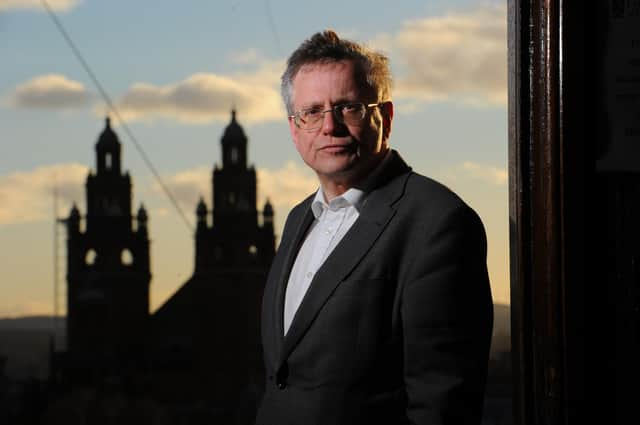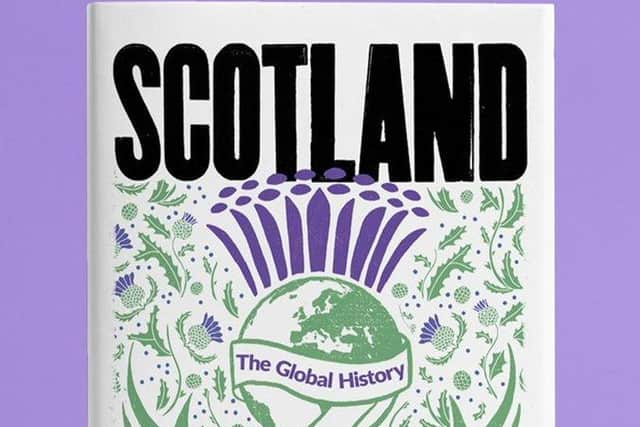Book review: Scotland - The Global History, from 1603 to Today, by Murray Pittock


Lay this hefty book aside for a moment. Consult Professor Pittock’s Wikopaedia entry, and you will be astonished the range of his activities, connections and publications. How, you may ask, can one man be so knowledgeable, so industrious, so sociable, so intellectually curious, such a master of the both the digital and established academic worlds. Is he an individual or an industry?
Perhaps the answer is simple. He is an Aberdonian, educated at the city’s Grammar School (200 years older than Eton), and deep-rooted in the North-East, a European and, if perhaps reluctantly, a grandchild of the British Empire.
Advertisement
Hide AdNo wonder he is so good on Jacobitism and Jacobite exiles in Europe, for the north-east was the cradle of intellectual Jacobitism, and on Robert Burns, whose family roots were in The Mearns, and who spoke for the Brotherhood of Man while also, till the success of the Kilmarnock edition of his poems changed his fortune, intending to take up post on a sugar estate, worked by slave labour, in Jamaica.
There is scarcely a dull page in this book, though readers may well find the wealth of detail dizzying. Yet the detail is as necessary as it is fascinating, for the key to Scottish success in Europe and the wider world is the national – clannish or familial – gift or enthusiasm for networking, whether in Europe, the Empire, the USA, Latin America , and of course London, Oxford and Cambridge.
Pittock may, like so many of a nationalist tendency, be ambivalent about Scots in England and those described, not always correctly, as Anglo-Scots, but he would not deny their often leading role in the City of London, the upper ranks of the civil service, the Armed Forces, Fleet Street, the Reithian BBC, and the universities, especially Oxford and Cambridge.
As a north-easterner, he pricks some of the long-established certainties of Scottish history, having for instance little regard for the Covenanters, effectively questioning the myth of “the Killing Times”, demonstrating that 17th century Episcopalians were every bit as authentically Scottish as Presbyterians, and writing approvingly of the Stuart kings Charles II and James VII. He is good on Scottish writers with a global reputation: Scott as well as Burns, Stevenson and Buchan, though not Carlyle, whom he dismisses as a racist.
This is true enough, but his influence, which was by no means all repulsive, shouldn’t be neglected: Past and Present was the most acute criticism of industrialism and 19th century laissez-faire economics. It influenced Marx and led George Eliot to say that there was scarcely an important book published in England since its appearance which didn’t bear the stamp of Carlyle’s influence.


Pittock recognises the reality of Nationalist-Unionism as articulated by Professor Colin Kidd, though his work, notably Subverting Scotland’s Past and Union and Unionists are strangely absent from Pittock’s list of suggested Further Reading, as is anything by Michael Fry and Professor Christopher Harvie, even though both have moved to support for Scottish Independence, one from Toryism, the other from Labour.
Advertisement
Hide AdBut one senses that, even while noting the reality of Scottish dual identity and Britishness, Pittock is uncomfortable with the idea of that Scottish-British identity. Yet, no matter how great Scottish influence in Europe and beyond has been, it has been greater still in England and on the history of the United Kingdom. It is after all only 20 years since the predominance of Scots in the UK Government had journalists, not only Scots like Andrew Neil, writing, some boastfully, about the “Scottish Raj”.
This is a fascinating, thought-provoking book, one to read through, then dip into here and there. For me, the most interesting chapters dealt with the 17th and 18th century activities of Scots, many of them Jacobite exiles, in Europe and I learned much from these chapters.
Advertisement
Hide AdProfessor Pittock stops short of endorsing Arthur Herman’s claim that the Scots invented the modern world, but he does show we did indeed play a big part in creating it. He echoes the old cry “Wha’s like us?”
Scotland: The Global History, from 1603 to Today, by Murray Pittock, Yale University Press, £25